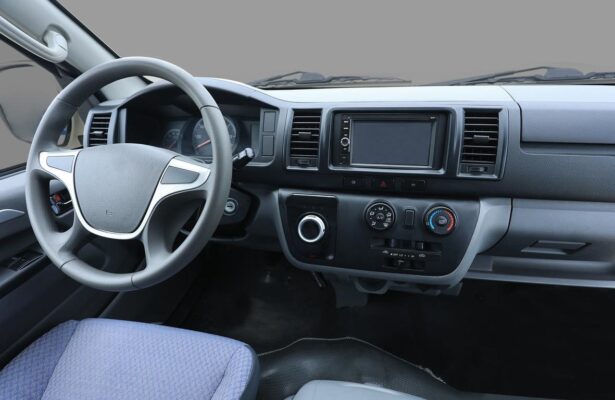In the modern automotive landscape, pure electric vehicles have emerged as a significant alternative to traditional fuel – powered vehicles. As with any complex piece of machinery, the question of whether a pure electric vehicle needs maintenance is an important one. The answer is yes, pure electric vehicles do require maintenance, although the nature of this maintenance differs from that of their fuel – powered counterparts.

Which Aspects of a Pure Electric Vehicle Need Maintenance?
A pure electric vehicle comprises several key components, all of which need to be maintained to ensure the vehicle’s optimal performance and safety.
The Battery System
The battery system is arguably the most crucial part of a pure electric vehicle. It serves as the energy reservoir that powers the vehicle. Regular checks on the charging power source are essential. This includes ensuring that the charging cable is in good condition, without any fraying or damage that could lead to electrical problems during charging. The charging connector should be clean and free from debris or corrosion, as any interference in the connection can affect the charging process.
The battery packs themselves also demand attention. These packs are made up of multiple individual battery cells, and their collective health determines the vehicle’s range and overall performance. Monitoring the battery packs involves more than just ensuring they hold a charge. It also requires looking for signs of physical damage, such as swelling or leakage. Swelling can indicate internal pressure build – up within the battery cells, which may be a sign of a more serious problem. Leakage, on the other hand, can be extremely dangerous as it may involve corrosive battery electrolytes.

The Motor
The motor is the heart of the electric vehicle, converting electrical energy into mechanical motion. Regular inspection of the motor is necessary to identify any potential issues early on. This includes checking for unusual noises during operation. A whining or grinding noise could indicate problems with the motor bearings or other internal components. Ntxiv thiab, the motor’s temperature needs to be monitored. Overheating can occur due to factors such as excessive load or a malfunction in the cooling system. If the motor gets too hot, it can lead to a reduction in performance and, in severe cases, permanent damage.

The Electric Control System
The electric control system is like the brain of the electric vehicle, regulating the flow of electricity between the battery and the motor. It also controls various other functions such as regenerative braking and power management. The connections within this system need to be regularly checked for tightness. Loose connections can cause electrical resistance, which may result in power losses or even electrical fires. The system’s software also requires periodic updates. These updates can improve the efficiency of the control system, fix bugs, and enhance the vehicle’s overall performance.

The Braking System
The braking system in a pure electric vehicle is just as important as in a traditional vehicle. In fact, due to the added weight of the battery pack, the braking system may be under even more stress. Brake pads are a key component that needs regular inspection. They gradually wear down over time with use, and if not replaced in a timely manner, can lead to reduced braking performance. Signs of brake pad wear include a screeching noise when braking or a decrease in the vehicle’s stopping distance.
Brake fluid is another aspect of the braking system that requires attention. The level and quality of the brake fluid should be checked regularly. Brake fluid can absorb moisture over time, which can lower its boiling point and affect its ability to transmit hydraulic pressure effectively. If the brake fluid is contaminated or has a low level, it can lead to a spongy brake pedal feel and decreased braking efficiency.

The Tires
Tires play a vital role in the safety and performance of an electric vehicle. The tire pressure needs to be maintained within the manufacturer – recommended range. Incorrect tire pressure can have several negative impacts. Under – inflated tires can increase rolling resistance, which reduces the vehicle’s range as the motor has to work harder to move the vehicle. Over – inflated tires, on the other hand, can lead to a harsher ride and reduced traction, especially in wet or slippery conditions.
Tire wear is also a significant concern. Uneven tire wear can be an indication of alignment problems or improper tire inflation. Regular inspection of the tread depth is necessary. Worn – out tires with insufficient tread depth can lead to a loss of traction, especially during braking and cornering, increasing the risk of accidents.

How to Maintain the Battery System?
Maintaining the battery system of a pure electric vehicle is a multi – faceted task.
Charging and Discharging Operations
Following the manufacturer’s guidelines for battery charging and discharging is fundamental. Over – charging can cause the battery to overheat and may lead to a reduction in battery life. Modern electric vehicles are equipped with battery management systems that are designed to prevent over – charging to a certain extent. However, it is still important for the owner to be aware of the recommended charging times and not leave the vehicle plugged in for an excessive period.
Over – discharging is equally harmful. Allowing the battery to run down to extremely low levels can damage the battery cells irreversibly. To avoid this, it is advisable to keep an eye on the vehicle’s battery level indicator and recharge the vehicle when the battery level gets low.

Monitoring Battery Health
Regularly assessing the health of the battery is crucial. This can be done through the vehicle’s onboard diagnostic system or by using specialized battery diagnostic tools. These tools can provide information about the battery’s state of charge, its capacity over time, and any potential cell imbalances. If any signs of battery degradation are detected, such as a significant reduction in range or a decrease in charging speed, it may be necessary to take further action.

Temperature Management
Batteries are sensitive to temperature, and maintaining the appropriate temperature range is essential for their longevity. In cold weather, the battery’s performance may be reduced. Some electric vehicles are equipped with battery pre – heating systems that can be activated before driving to improve battery efficiency. In hot weather, excessive heat can accelerate battery degradation. Parking the vehicle in shaded areas or using sunshades can help protect the battery from overheating.

Replacing Aging or Faulty Battery Modules
As the battery ages, individual battery modules may start to degrade at different rates. If a particular module shows signs of significant failure, such as a sudden drop in voltage or capacity, it may need to be replaced. Replacing only the faulty module can be more cost – effective than replacing the entire battery pack, depending on the vehicle’s design and the availability of replacement modules.

How to Maintain the Motor and Electric Control System of an Electric Vehicle?
Motor Maintenance
For the motor, in addition to checking for abnormal noises and overheating as mentioned earlier, the motor’s cooling system needs to be in top – notch condition. The cooling system is responsible for dissipating the heat generated during the motor’s operation. This may involve checking the coolant level (if the motor uses a liquid – cooled system), ensuring that the radiator fins are clean and free from debris, and verifying that the cooling fans are working properly.
The motor transmission system also requires attention. This includes checking the condition of the drive shafts, gears (yog muaj), and any couplings or belts. Any signs of wear or misalignment in these components can affect the motor’s ability to transfer power efficiently to the wheels.

Electric Control System Maintenance
Regarding the electric control system, in addition to checking the connections, it is important to ensure that the system is protected from electrical interference. This can be achieved by keeping the vehicle away from strong electromagnetic sources when parked. Also, the power electronics components within the control system, such as inverters and converters, need to be inspected for signs of overheating or damage. These components are responsible for converting the direct current from the battery to the alternating current required by the motor and vice versa.

What is the Importance of Maintaining the Braking System and Tires?
The Significance of Braking System Maintenance
The braking system is a critical safety feature of any vehicle, and electric vehicles are no exception. A well – maintained braking system ensures that the vehicle can stop quickly and safely in all driving conditions. In addition to the brake pads and brake fluid mentioned earlier, other components such as the brake calipers, rotors, and brake lines also need to be inspected regularly.
Brake calipers can seize or develop leaks over time. A seized caliper can cause uneven braking, leading to the vehicle pulling to one side during braking. Brake rotors can warp due to excessive heat or wear, which can result in vibrations when braking. Brake lines need to be checked for leaks and damage. Any leak in the brake lines can lead to a loss of hydraulic pressure and a complete failure of the braking system.

The Importance of Tire Maintenance
Tires are the only contact point between the vehicle and the road, making their maintenance crucial for both safety and performance. As mentioned before, proper tire pressure and tread depth are essential. But tire maintenance also includes regular tire rotation. Tire rotation helps to evenly distribute the wear across all four tires, extending their overall lifespan.
Alignment is another aspect of tire maintenance. Incorrect alignment can cause the tires to wear unevenly and can also affect the vehicle’s handling. Regular alignment checks and adjustments can improve the vehicle’s fuel efficiency (in the case of electric vehicles, zog efficiency), tuav, and the lifespan of the tires.

What is the Maintenance Frequency of a Pure Electric Vehicle?
The maintenance frequency of a pure electric vehicle is generally lower compared to traditional fuel – powered vehicles. This is because electric vehicles have fewer moving parts and do not require oil changes or other engine – related maintenance. However, this does not mean that they can be neglected.

Typically, an electric vehicle may need to be taken to the maintenance station every 10,000 – 15,000 miles or once a year, depending on the vehicle usage. Piv txwv, if the vehicle is used for a lot of short – trips or in harsh driving conditions, more frequent inspections may be required. The manufacturer’s recommendations should always be followed as they are based on the specific design and components of the vehicle.
Hauv kev xaus, although pure electric vehicles do not require the same type of maintenance as traditional fuel – powered vehicles, they still need regular and comprehensive maintenance. The battery system, motor and electric control system, braking system, and tires all play crucial roles in the vehicle’s performance and safety, and proper maintenance of these components is essential to ensure that the electric vehicle operates at its best for a long time.
